“And the pale sun of October whispers the snow will soon be coming
And I wonder when I’ll be home again and the morning answers ‘Never’
And the evening sighs, and the steely Russian skies go on forever”
They crossed over the border, the hour before dawn
Moving in lines through the day
Most of our planes were destroyed on the ground where they lay
Waiting for orders we held in the wood
Word from the front never came
By evening the sound of the gunfire was miles away
Ah, softly we move through the shadows, slip away through the trees
Crossing their lines in the mists in the fields on our hands and on our knees
And all that I ever was able to see
The fire in the air glowing red, silhouetting the smoke on the breeze
All summer they drove us back through the Ukraine
Smolensk and Viasma soon fell
By autumn we stood with our backs to the town of Orel
Closer and closer to Moscow they come
Riding the wind like a bell
General Guderian stands at the crest of the hill
Winter brought with her the rains, oceans of mud filled the roads
Gluing the tracks of their tanks to the ground while the sky filled with snow
And all that I ever was able to see
The fire in the air glowing red silhouetting the snow on the breeze
In the footsteps of Napoleon the shadow figures stagger through the winter
Falling back before the gates of Moscow, standing in the wings like an avenger
And far away behind their lines the partisans are stirring in the forest
Coming unexpectedly upon their outposts, growing like a promise
You’ll never know, you’ll never know which way to turn, which way to look you’ll never see us
As we’re stealing through the blackness of the night
You’ll never know, you’ll never hear us
And the evening sings in a voice of amber, the dawn is surely coming
The morning roads leads to Stalingrad, and the sky is softly humming
Two broken Tigers on fire in the night
Flicker their souls to the wind
We wait in the lines for the final approach to begin
It’s been almost four years that I’ve carried a gun
At home it will almost be spring
The flames of the Tigers are lighting the road to Berlin
Ah, quickly we move through the ruins that bow to the ground
The old men and children they send out to face us, they can’t slow us down
And all that I ever was able to see the eyes of the city are opening
Now it’s the end of the dream
I’m coming home, I’m coming home, now you can taste it in the wind, the war is over
And I listen to the clicking of the train-wheels as we roll across the border
And now they ask me of the time that I was caught behind their lines and taken prisoner
“They only held me for a day, a lucky break, ” I say they turn and listen closer
I’ll never know, I’ll never know why I was taken from the line and all the others
To board a special train and journey deep into the heart of holy Russia
And it’s cold and damp in the transit camp, and the air is still and sullen
And the pale sun of October whispers the snow will soon be coming
And I wonder when I’ll be home again and the morning answers “Never”
And the evening sighs, and the steely Russian skies go on forever
In Performance:

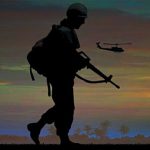





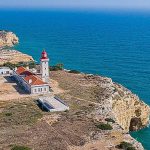

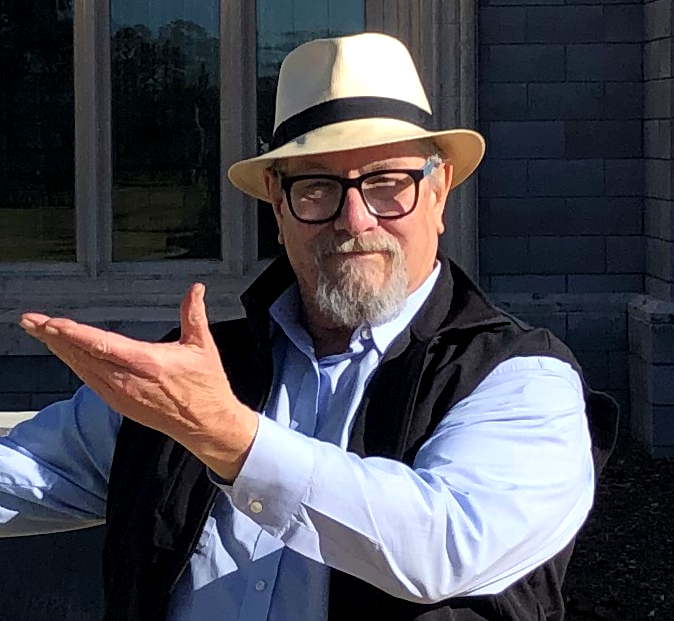 Gerard Van der Leun
Gerard Van der Leun



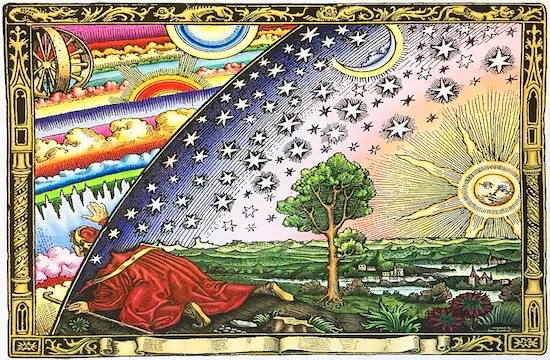

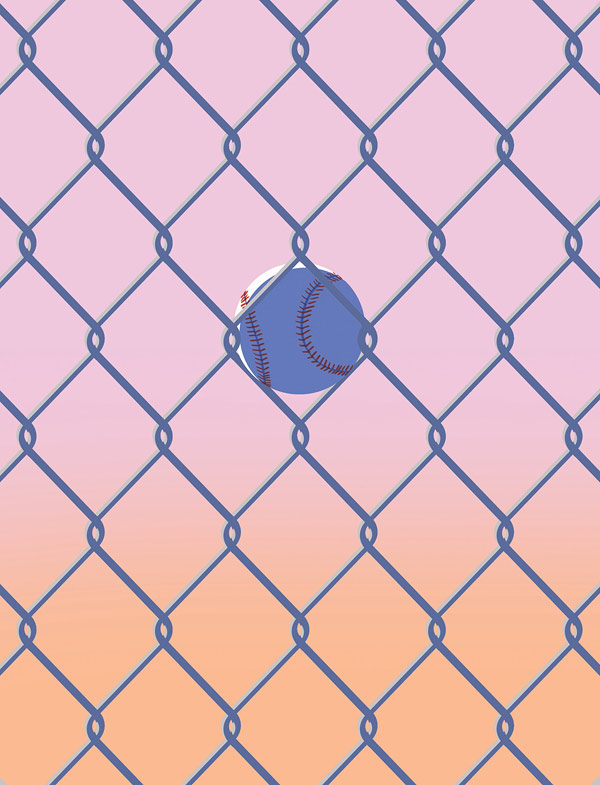
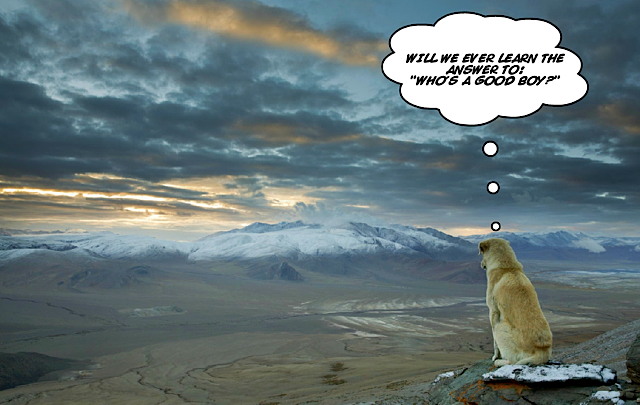

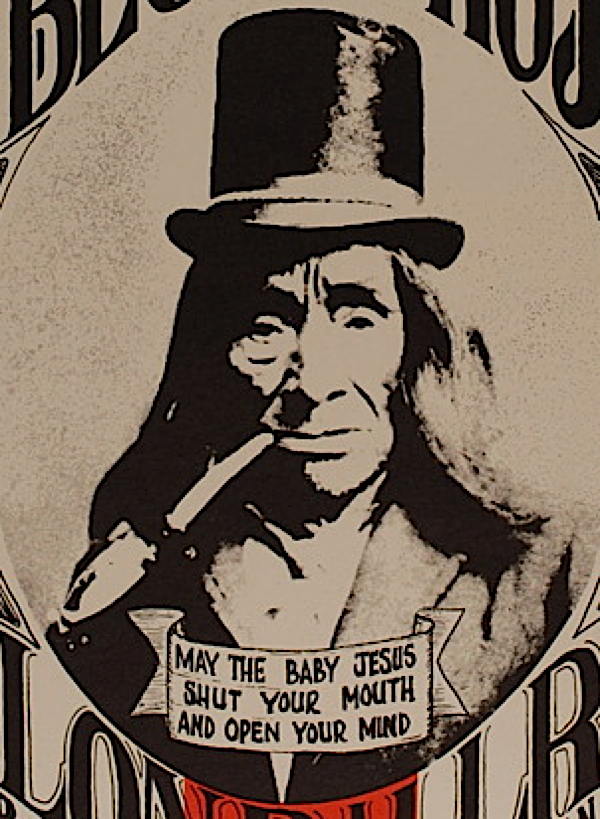

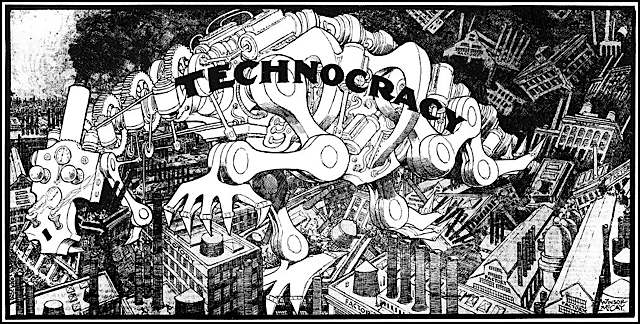

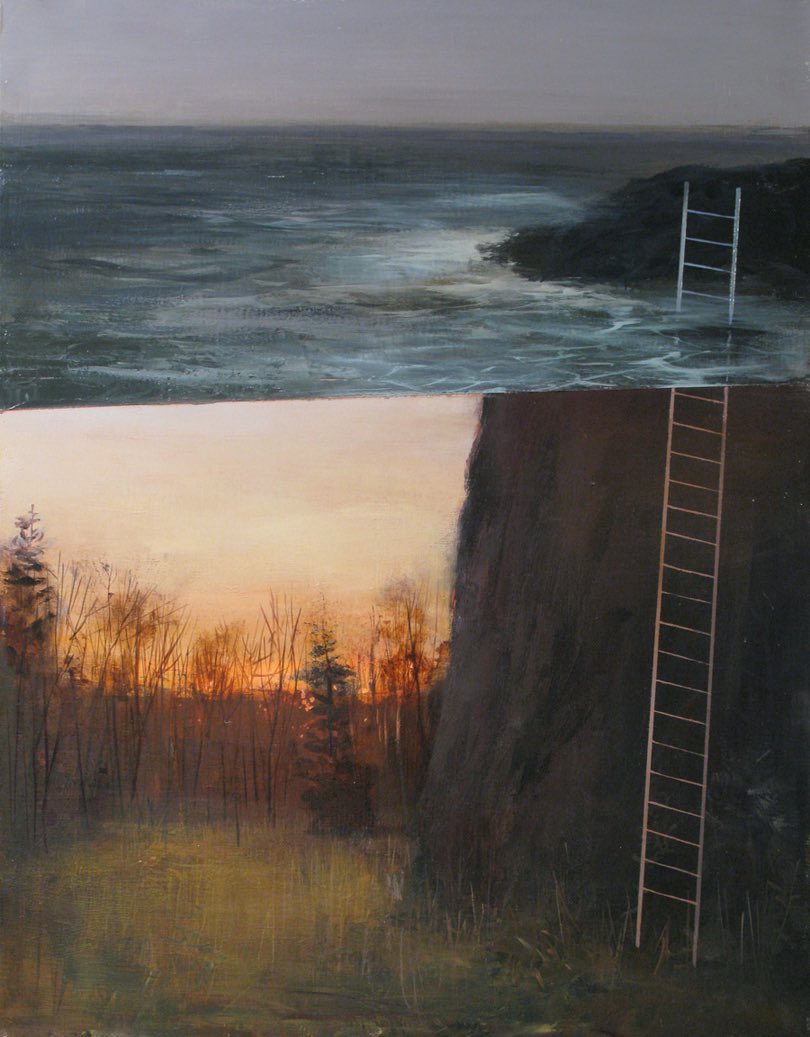
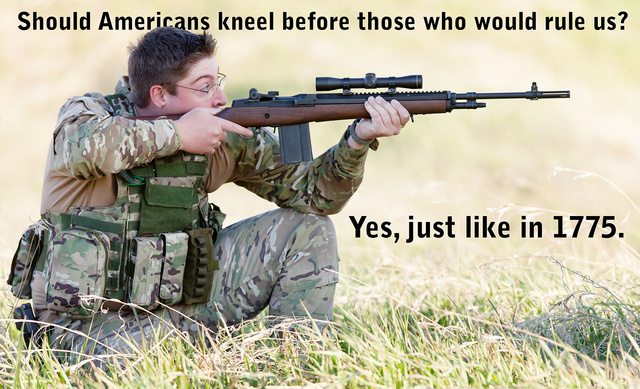

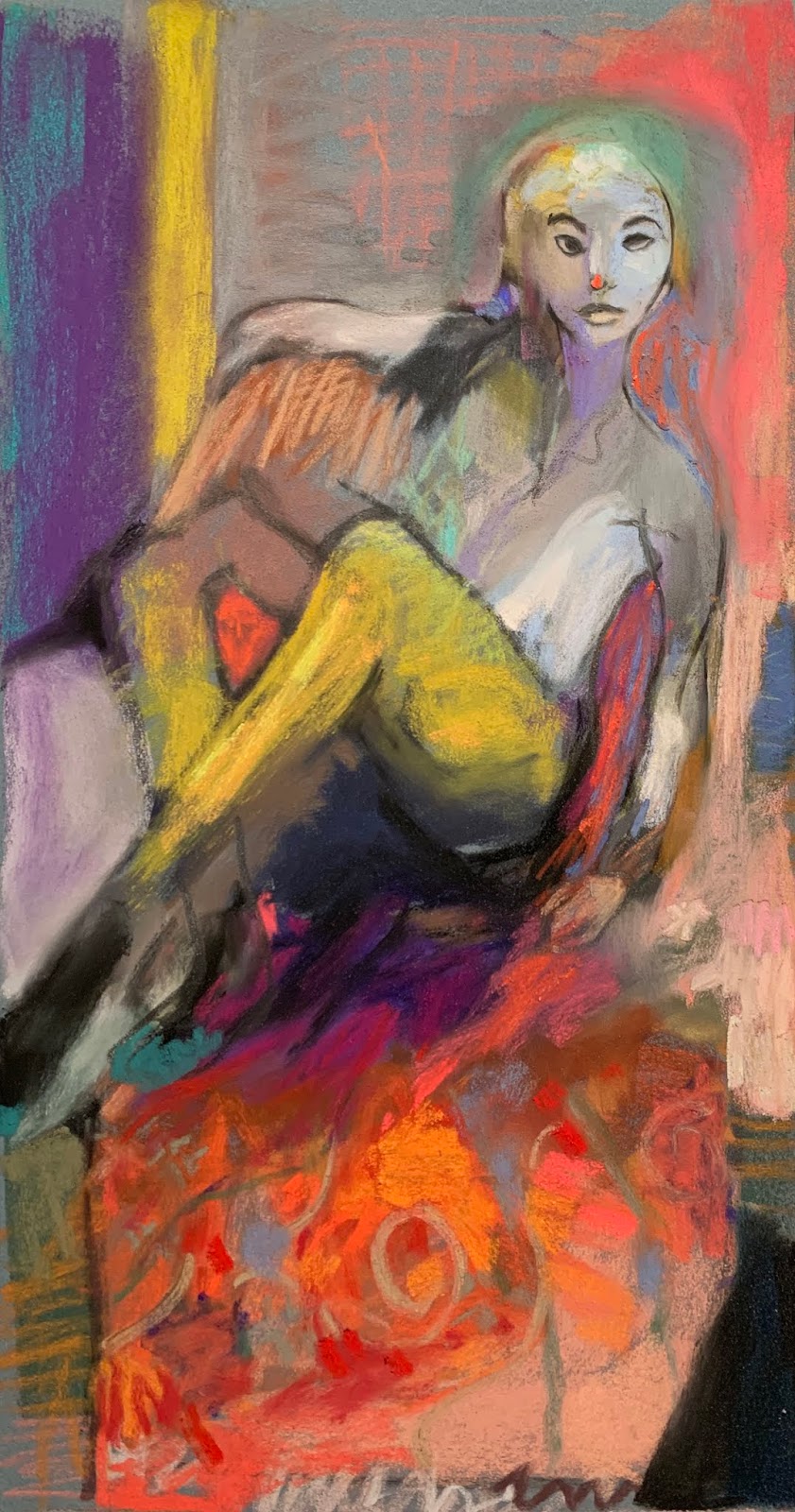
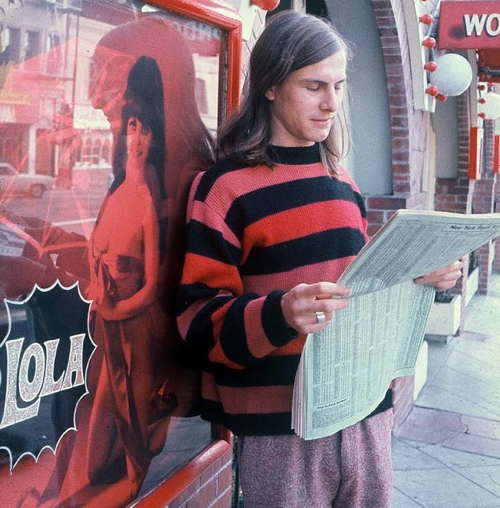
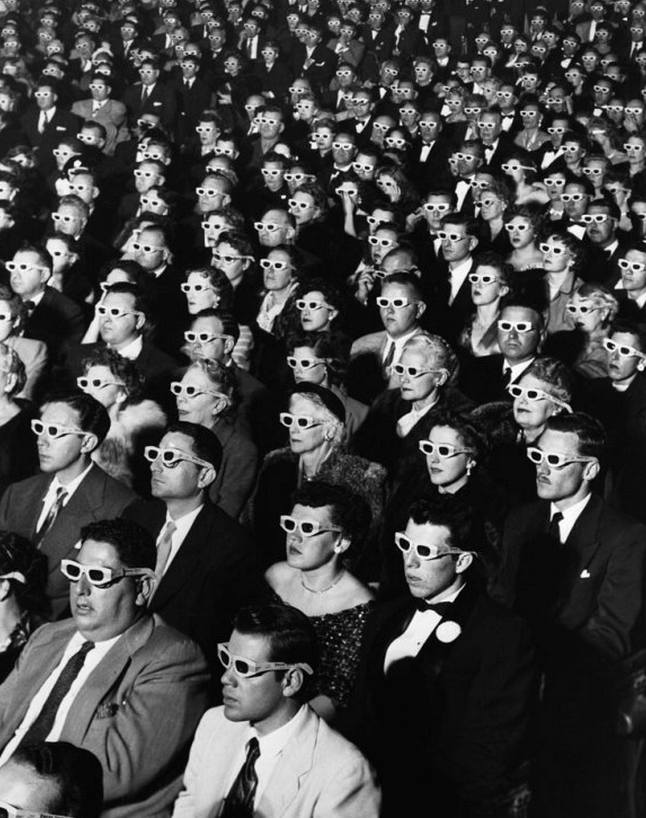
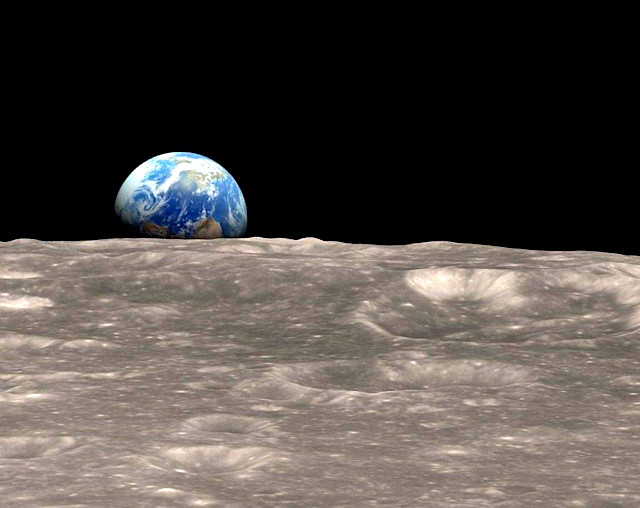


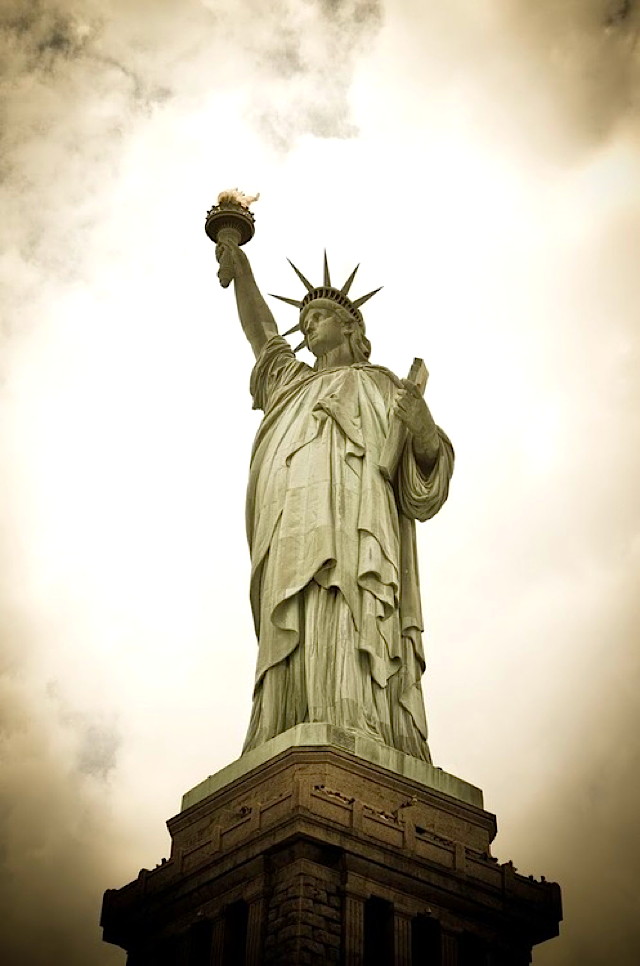


Comments on this entry are closed.
It’s all there: The History of the Eastern Front in World War II. Poland, Ukraine and eastern Russia suffered 40,000,000 killed in those “bloodlands” between June 1941 and May 1945. As I write these words there is yet another war in almost the same place.
“Plus ça change, plus c’est la même chose.” This damn road goes on forever. Whatever.
Only the dead have seen the end of war. They are the lucky ones.
Enjoy the war because peace will be hell was a saying by the Landser or soldiers of the Wehrmacht.
Russians had agitprop posters of a skeleton German soldier riding on a train to the front and the caption forward.
The halfwits that we call “leaders” will get the Russian people into great patriotic battle for the holy Motherland mode.
Who’s the historical genius who mixed in about 6 minutes of WWI Western Front related video with perhaps 20 seconds of WWII Eastern Front related video in this song about the WWII war between the USSR and Nazi Germany? No doubt he has a PhD in Military History; probably works in the State Dept’s Division of Ukrainian Warmongering
At least Al did his homework. All the names are accurate. And he even covered the atrocity at the end where soldiers who may have been POWs for even a brief period were sent to the Gulag, even if they fought for years on the front in the deadliest war ever. Unbelievable
Yep. That was weird. It was impossible to watch, so I just listened while being glad I was not that Russian soldier.
#Mike Austin
I’m familiar with that “Bloodlands” title. That horrific bloodletting didnt just start on June 22. 1941. It begins right after the end of WWI, with the Russian Civil War which spilled over into Poland. And, if I’m not mistaken Bloodlands also deals with the victims of Lenin and Stalin atrocities
And if all this is included, the death toll might be as high as 50 million. I’ve heard it said that this should be designated the Slavocaust. But then again, it happened to Slavs, so who cares?
Obviously its not important. What percentage of Americans have any idea of the enormity of these events
Lets get back to a REAL horror, like, the several dozen (shudder!) who may, or may not, have died in the Tulsa riots one hundred years ago
I just finished that book “Bloodlands”, by Timothy Snyder. And you are right, the slaughter began right after World War I. Some folks today still whine about the Holocaust—6,000,0000 dead—but the Slavs lost six times as many to Soviet and Nazi depredations. Who mourns for them? Where are their monuments? Do they not matter?
I am an Oklahoma boy who is happily retired from 27 years of teaching and living in Oklahoma City. My grandfather was a policeman during those “riots”. The amount of purposefully spread disinformation from the media was around way back then. It was the “George Floyd” of its day, but mainly in the eastern media. The local boys handled it quite well.
After you read Panzer Leader (Guderian’s book), follow-up with Other Men’s Graves, by Peter Neumann. Guderian was highly placed and almost one of the Great Captains of History, but for a couple of echelons of command/rank. He was somewhat the same as Patton, give or take a command level, in regards to them both being very aggressive and formative in the development of tank warfare. I still see Guderian in that command car with four or six radio antennae and his map boards, as he depicted himself in his memoir.
Neumann was an SS panzergrenadier captain who fought on the Eastern Front, and tells the stand-up story of the hell-hordes of Oriental Soviets, undisciplined and drunk on the front lines, and without formations or proper weaponry. They had: Mass, and Momentum. Neumann swam the Danube in Vienna, at night, and covered himself with dead bodies to avoid death. As a captive of the Russians, he spent, iirc, a decade in a Siberian concentration camp.
Still want to lose a war, just for fun? Don’t. / Never. Lose. a. War. Especially against the Russians.
I have never been a student of 20th century German generals, though I did study the campaigns of Hindenburg and Ludendorff on the Eastern Front of World War I. I always felt that Rommel was not as competent as historians claimed. Patton, however, was the best tank commander America ever produced. We should have listened to him post-1945.
I am going to read both Guderian and Neumann.
As for the Russian mass: “Quantity has its own quality.” The Germans were the better soldiers but there were not enough of them. Their casualties could not be replaced, and they were simply overwhelmed.
We’re getting a lesson in how to counter Mass right now; the answer is Time & Space. Also, and this might be a rare corollary for Clausewitz: firepower. We proved this in Korea.
Armaments have always had some impact on the changing face of war, but never has the asymmetric application of fires been so dramatic.
Lighting a candle to Saint Javelin.
Just ordered a used hard-bound copy of Guderian. The Neumann book was priced used at $150!
My library is a complete mess, with my wife’s sewing stuff actually packed in front of the bigger book shelf! If I ever find that one, I’ll ship it to you immediately. It is a very important book; his inspection by Himmler is riveting.
I read somewhere that once when Himmler was inspecting a POW camp for American GIs and officers, that one of the Americans who was fluent in German asked to speak to Himmler there and then. He agreed, and the two had a conversation that lasted for several minutes. I wonder what they discussed.
I was a huge fan of Al Stewart–still am–back in the late-70s while a student at NYU. A true troubador in a manner that I just don’t hear anymore. What I’ve always admired about that song is that almost 50 years on that song still brings a tear to my eye…such a fascinating retelling of that period, and the lyrics are just wonderful.
Every day when I read something about Ukraine (not knowing what is/is not true), that song plays in my mind…